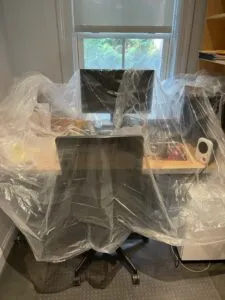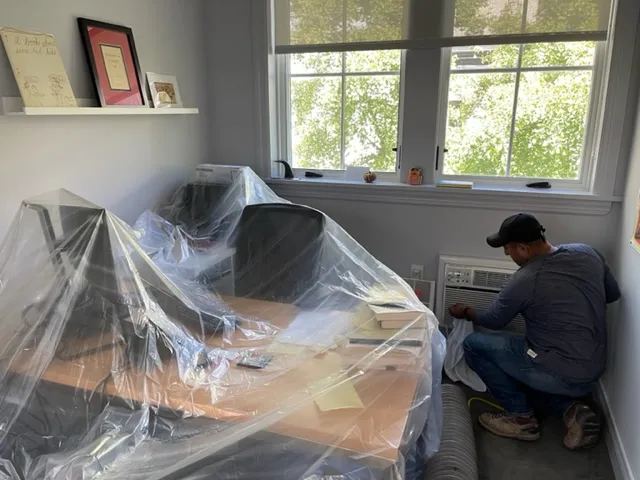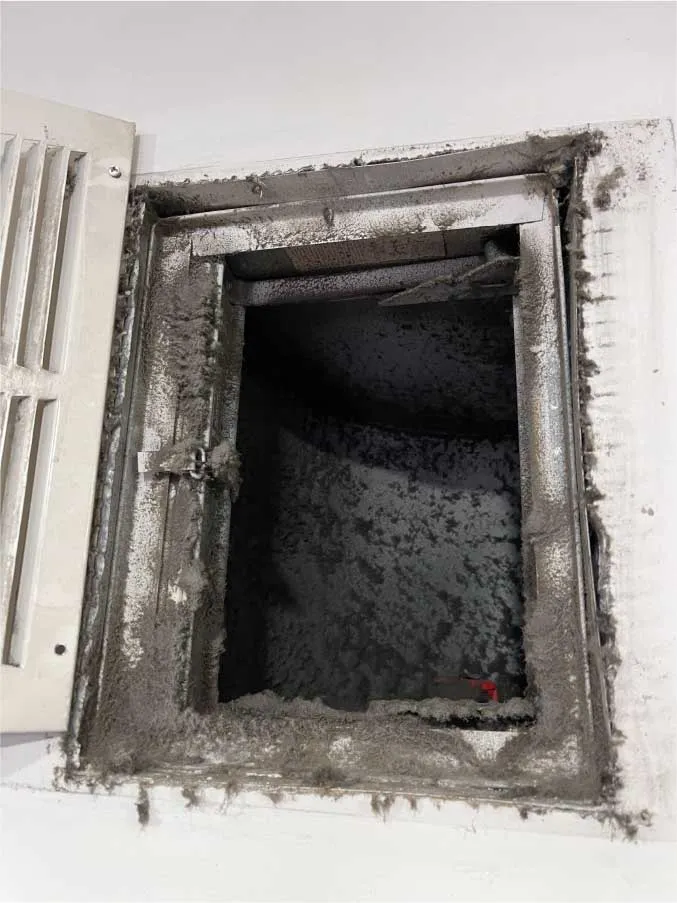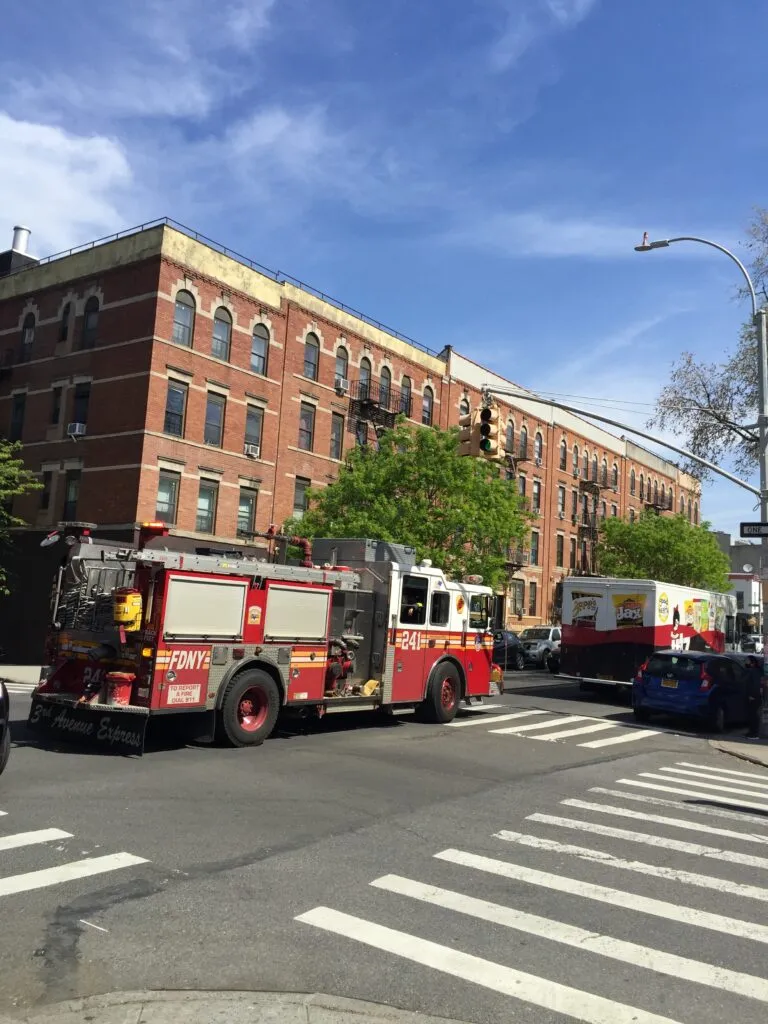Home air quality issues? Why it bothers you? Let’s discuss on how we can help.
We all spend most of our days indoors. Yes, that’s true! Now the thing is, if we are spending 90% of our day indoors, then we must have good indoor home air quality. When it comes to good home air quality, you should keep in mind these two factors.
- Functional HVAC system (which should have regular duct cleaning).
- Letting fresh air inside.
However, hold off on throwing open all of your home’s windows just yet. It’s a little trickier than that to choose the best ventilation plan.
These tips will help you decide when to open your windows and turn on your air conditioner to escape the heat for better indoor air quality.
Open Windows To Let Fresh Air In If:
- You Recently Made House Upgrades
A common problem with construction materials and paint is that they off-gas their adhesives and active ingredients. The results of this technique, particularly immediately after installation, may be harmful to the quality of indoor air. Verify the safety guidelines for each product, and wait for a long time before closing the windows in your home.
2. Mold Growth Issues
There are fungal or mold issues in your home. Mold, mildew, and other biological contaminants can flourish in an infected central air handling system. If you detect musty, odorous, or stifling air within your home, open the windows.
Find an indoor air filtration system that is made to specifically target and capture the pollutants in your house or location to help you in your efforts.
- The Atmosphere Is Heating Up
It doesn’t take much moisture (from showers or stovetop cooking) to create the kind of humidity dust mites love, especially in small or poorly ventilated homes.
 Home Air Quality
Home Air Quality
Close Your Windows If:
People who have sinus issues feel comfortable in a dry, air-conditioned environment in which there are no dust and pollen particles. As dust and pollen particles can exacerbate their sinuses and cause difficulty in breathing.
- The Ambient Air Is Moist
Both indoor allergens and external pollutants that enter the house can have harmful effects, which humidity can amplify. Dust mites thrive in humid environments, which is why they are such a common allergy trigger for many individuals.
- Smoke from Wildfires or Local Pollution
It’s still important to use a heavy-duty air filtration system even with closed windows and doors because harmful particles can sneak through.
Hoem Air Quality. Why Is Keeping Your Windows Open during the Winter Important?
Daily fresh air can significantly reduce indoor air pollution, both by diluting indoor emissions and carrying indoor air pollutants away. However, in winter, there is no way you can lose that heat, because most home heating systems don’t provide fresh air to the house.
Poor indoor air quality and inadequate ventilation can cause sensory irritation, invoke subtle effects on the central nervous system, trigger respiratory diseases, asthma, and allergies, and have other unpleasant effects.
Not just days with warm weather when windows should be open. Every season is a fantastic time to throw open the windows in your house for a variety of reasons. Even though opening a window for a brief period on colder days has benefits.
Normally, we love how well our modern homes are packed and how they keep us warm in the winter seasons. However, we don’t pay attention to the fact that the tight seal in modern homes causes indoor air to become stale.
HVAC systems technically don’t provide fresh air, even though they circulate and filter the air.
As a result, even with AC, indoor air isn’t as fresh as outdoor air. You may reap some of these perks of fresh air by opening a window for as little as five minutes each day. By doing so, clean, fresh air can enter your home and replace any damp air.
According to conventional knowledge, ventilation for at least 5 minutes, and preferably 15 to 20 minutes, each day greatly enhances indoor air quality. Open the front and back doors, as well as any windows along the way in between, to let the indoor pollutants out.
By allowing the outdoor and indoor microbiomes to interact, you may diversify the beneficial bacterial populations in your home and boost your immune system.
It’s also important to ventilate your home once the heating system is switched off. To get adequate ventilation in your home, it is important to open the windows before you leave the house and before you go to bed to reduce condensation and prevent various problems from occurring.
The smallest gap in your window overnight will improve the comfort of the air that circulates in your room if you can manage it.
Tips for Opening Windows in Winter
When we wish to air our rooms in the winter, particularly when the temperature drops below zero, different restrictions apply. When done incorrectly, it results in heat loss and, as a result, higher heating expenditures. How can the rooms be ventilated in the winter? Here are a few easy suggestions.
- Prevent Drafts
While this approach has beneficial effects in the summer, it can result in overcooling of the walls and floor in the winter.
- Reduce the Heating Temperature before Opening the Window
You can always keep your room at a reasonable temperature thanks to thermoelectric actuators, which are becoming more and more popular for radiator installation. We can increase the heating system’s efficiency by opening a window.
The heated air will quickly escape through the window despite the radiator getting hot. Therefore, lowering the pre-set temperature while ventilating will be a beneficial practice. We can also wirelessly control the temperature of thermoelectric actuators with the help of gadgets like WiFi 8S or ST-8S.
- Open Your Windows Wide
Breathe in deeply but quickly. We encourage a quicker air exchange and avoid overcooling by widening the windows. Our rooms may receive the ideal amount of fresh air throughout the winter months by simply opening the windows for roughly 5 minutes.
- Don’t Forget To Heat and Ventilate Vacant Rooms
Mold growth is more likely in unheated rooms because of how rapidly the walls and ceiling cool down. On the other hand, it is not cost-effective to heat rooms that are not utilized as frequently as those where we remain every day.
Installing an electric actuator on the radiator and lowering the temperature by a few degrees in comparison to other rooms is therefore the best course of action in this situation.
- Close the Doors of Rooms with Different Heating Temperatures
If you have different heating temperatures in different rooms, close the doors between them during ventilation. This will stop warm, humid air from condensing in cooler spaces.
Home Air Quality and The Effects of Inadequate Ventilation
The most frequent consequences of inadequate ventilation include:
- Greater chance of mold growth on the walls.
- Allergic reactions.
- Respiratory issues.
- A worsening of one’s physical state.
- Lowered immunity; and impaired concentration.
The Importance of Ventilation In Relation To COVID-19
It is possible to stop the transmission of the coronavirus (COVID-19) and other respiratory illnesses like the flu by allowing fresh air into enclosed rooms. Additionally, improved sleep and concentration, as well as a reduction in sick days from work or school, have all been related to the health advantages of proper ventilation.
Virus particles are released into the air when someone with a respiratory viral infection breathes, speaks, coughs, or sneezes. These specks may be inhaled or may make contact with the mouth, nose, or eyes. Additionally, the particles can fall to the ground and spread by touching people.
Unlike larger droplets, aerosols containing the virus may remain in the air for a long time after an infected person leaves. When there are many infected people in a room with inadequate ventilation, the amount of virus in the air might accumulate, increasing the likelihood of spread.
Residents of an enclosed place who are engaged in vigorous activity, such as working out, or who are screaming, enhance their risk of airborne transmission.
The likelihood of respiratory illnesses spreading is decreased by introducing fresh air into a space and removing older, stale air that carries virus particles. Any airborne viruses will leave the area more quickly if additional fresh air is introduced.
The benefits of ventilation with clean outdoor air include removing viruses and other particles and removing gases, like carbon dioxide. Despite this, most ventilation systems use recirculated air because outdoor air is hard to heat or cool.
If the recirculated air does not pass through a filter designed to remove microscopic particles, ventilation with recirculated air will not lessen the risk of COVID-19. The Minimum Efficiency Reporting Values (MERV) rating of a filter indicates how effectively it filters out airborne particles of various sizes.
A filter with a MERV grade of 13 or higher (MERV 13+) eliminates at least 90% of particles the size of viral aerosols. Higher MERV ratings are required for High-Efficiency Particulate Air (HEPA) filters. At least 99.97% of particles, including those smaller than aerosols, are removed by a HEPA filter.
Tips for Better Home Air Quality in the Home
- Use Ventilation Fans
Exhaust fans move the air in the room they’re in outside through vents. Most likely, the exhaust fans in your kitchen and bathroom are made to draw airborne particles up and out of space.
Always keep the bathroom exhaust fan on when using it to remove moisture from the air and prevent the growth of mold on surfaces around the sink or bathtub. The same principle applies in the kitchen: turn on the exhaust fan while using the stove or oven to remove smoke or fumes from baking food or while using an oil-based cooking method.
- Clean The Air In Your Home
If you want to reduce mold growth in your home, use a whole-home or single-room dehumidifier. Heating and cooling systems do not effectively remove moisture and pollutants from the air, so a whole-home or single-room dehumidifier is recommended.
Use a HEPA filter vacuum and activate the carbon filter to effectively filter out the indoor air pollutants from your home. The combination of a HEPA filter vacuum and an activated carbon filter is recommended for maintaining the home air quality level.
- HVAC Duct Cleaning
You can have improved indoor air quality through adequate ventilation and a functional HVAC system.
It is critically important for you to have regular duct cleaning of your HVAC duct system, as once the ducts are dirty and filled with mold growth, dust particles, or other contaminated air pollutants, your HVAC system will throw the contaminated air into your living space.
Eventually, you will face the consequences of breathing contaminated air in the form of asthma attacks, difficulty breathing, or other respiratory issues. Even if you sufficiently ventilate your home, but your air ducts are dirty, ventilation alone won’t be enough to provide you with clean air.
Therefore, you should schedule air duct cleaning for your HVAC system so that the ducts recirculate clean air in your living space.
- Open The Windows
You can naturally boost ventilation in your home by opening windows, but be sure to first check the outside air quality. Keep an eye out for high humidity levels or poor outdoor air quality.
The ideal interior humidity level is below 60%, and an Air Quality Index (AQI) score of greater than 100 indicates that the outdoor air is unhealthily polluted.
You can control the temperature by opening windows on the first and second floors. An open window on the first floor will allow cool air in, and an open window on the second floor will allow warm air to escape.
- Use Air Purifiers
Use Smart Air Purifiers in areas of your home where you need cleaner indoor air quality if your home does not have an HVAC system or you want additional filtration for effective removal of indoor pollutants.
The Advantages of Opening Windows
- Remove Any Airborne Contaminants
Indoor air quality can be harmed by pollutants like cigarette smoke, radon gas, leaked chemicals from furnishings, paint, and solvent odors. Opening windows enables you to improve indoor home air quality as fresh air enters the home.
- Naturally Moving The Air
Open windows facilitate air circulation in your home or office. If there isn’t a breeze, you can utilize a room fan to help move the clean outdoor air around your house.
- Enhances Indoor Air Quality
Pollution indoors frequently exceeds that outside. Allergies and other health problems are brought on by poor indoor air quality. Thanks to modern architecture; modern homes are designed to be airtight to save energy. Windows and doors that are closed can trap dangerous particles.
- Less Need for Air Fresheners
You don’t need as many air fresheners because fresh air is effective at eradicating unpleasant odors from your home right away. You don’t need to use air fresheners or chemical scents when cleaning because bad odors aren’t present in the air.
- Saves on Energy Bills
When windows are opened, fresh air enters the home, and often the cool breeze moderates the home’s indoor temperature, thus reducing the need for fans and conditioners. Energy costs decrease when you consume less electricity and fossil fuels.
- Reduced Allergen Accumulation
You won’t need frequent cleaning of equipment like air purifiers and vacuums if you regularly open your windows. You won’t have to deal with dust, pollen, and pet dander accumulating in your home, so you’ll have less to clean and fewer spores to breathe in.
The Quality of the Air Outside In Towns and Cities
People who live in cities are particularly impacted by air pollution, which is lethal. Polluted air contains dangerous gases and tiny particles that can get deep into our lungs and into our blood, endangering our cardiovascular, respiratory, and other body systems.
In short, the quality of the air outside in towns and cities is extremely poor and is further deteriorating with time.
Young children, the elderly, and those with pre-existing medical issues are the groups most in danger. Children who are born and reared in high air pollution areas—whose lungs and immune systems are still developing—are more likely to acquire asthma, live shorter lives, and have up to four times the likelihood of having seriously impaired lung function as adults.
Then come car emissions problems, as the vehicle engines emit nitrogen oxides (NOx), volatile organic compounds (VOCs), carbon monoxide (CO), carbon dioxide (CO2), particulates, sulphur dioxide (SO2), and lead.
Air pressure toxic levels that are known or believed to cause cancer in people or animals are influenced by motor vehicle emissions. Exposure to air toxics can also cause non-cancerous health problems such as damage to the nervous, cardiovascular, respiratory, reproductive, or immune systems.
Final Thoughts about home air quality issues
When it comes to good home air quality, two factors are important: i) a working HVAC system (with regular duct cleaning) and ii) letting fresh air indoors. One of the most effective ways of natural ventilation is through open windows.
The benefits of ventilation with clean outdoor air include removing viruses and other particles and removing gases like carbon dioxide. Use a HEPA filter vacuum and activate the carbon filter to effectively filter out the indoor air pollutants from your home.
However, it is important to have regular duct cleaning of your HVAC system so that your ducts circulate clean air indoors.




